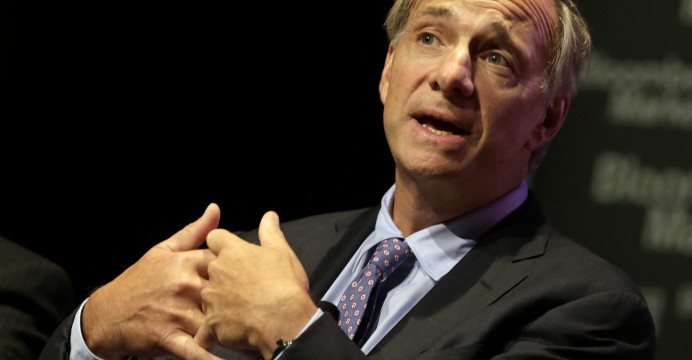
Hedge fund magnate Ray Dalio warned investors on Thursday that the next bear market could be very painful since most are not prepared for it.
“The world by and large is leveraged long,” Dalio, who runs the largest hedge fund in the world, said in a panel discussion at the Greenwich Economic Forum in Connecticut. “When there is a downturn, I don’t think there’s much to protect investors.”
Dalio did not call for a sharp downturn or the start of a bear market, but added: “Any investor should have a strategic asset allocation mix. In other words, what will be the neutral portfolio in an overall period of time and then figure out where there is alpha. That will distinguish the winners and the losers” when the next bear market arrives.
Stocks are in their longest bull market since World War II. Since the bottom of the financial crisis, the S&P 500 has more than tripled. The market’s jump in that time has been propelled in part by historically low interest rates from the Federal Reserve.
These low rates have created an incentive “to borrow money and buy stocks,” Dalio said. “That’s what caused the market to go up.”
However, the Fed is currently in the process of raising rates. The central bank has increased rates three times this year and is forecast to hike once more in December.
Dalio’s comments come amid heightened volatility in the U.S. stock market. The S&P 500 fell into a correction in October before rebounding. The recent sharp moves come as investors worry about higher interest rates and global trade as well as a possible slowdown in the global economy.
“You have to create differentiation without much beta being built into the portfolio,” he added. “That will be the opportunity to distinguish those who were able to extract alpha and those who weren’t.”
Dalio founded Bridgewater Associates, the largest hedge fund in the world, in 1975. Through the end of 2017, the fund managed about $160 billion in assets.